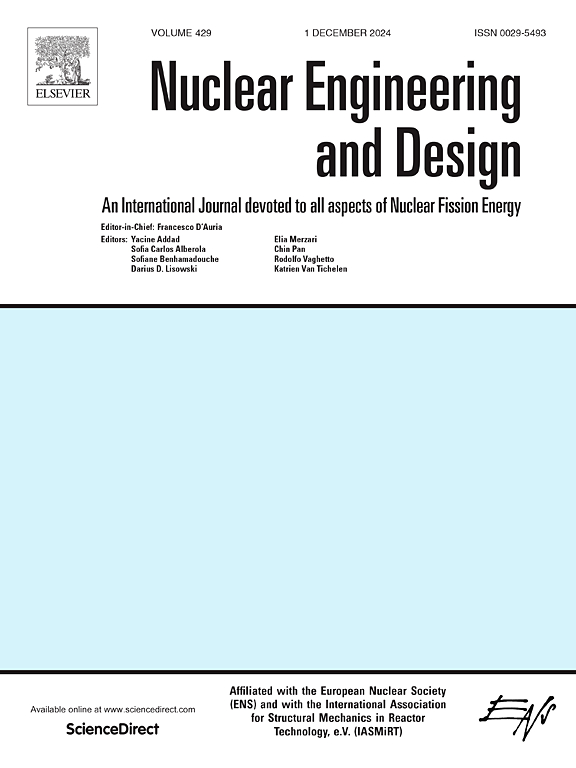VVER long-term operation – A review based on the material studies results from past and ongoing EU-supported research projects
IF 1.9
3区 工程技术
Q1 NUCLEAR SCIENCE & TECHNOLOGY
引用次数: 0
Abstract
Safe and long-term operation (LTO) of nuclear power plants (NPP) with Water-Water Energetic Reactors (VVER) is essential for several central and eastern European countries to keep their energy supply security. During the last decades, several EU-supported projects in framework projects or Horizon2020 schemes have focused on the material degradation of pressurised water reactors (PWRs), especially VVERs. This paper aims to extract the most important results dominantly from EURATOM projects which support or could limit the long-term operation of this Soviet design of PWRs. The accent is given on ongoing projects such as FRACTESUS, STRUMAT-LTO, APAL, and ENTENTE. Actually, running project DELISA-LTO (2022–2026) comprises not only results from previous research in this area but also incorporates wide material databases coming from nuclear power plant V-1 in Jaslovské Bohunice (Slovakia), which was shut down after 28 years of operation and provides wide-range of original service-aged materials specimens for profound material studies having in mind lifetime extension of VVERs. Consolidated knowledge focused mainly on the reactor pressure vessel (RPV) material studies is summarised and supported by relevant references.
求助全文
约1分钟内获得全文
求助全文
来源期刊

Nuclear Engineering and Design
工程技术-核科学技术
CiteScore
3.40
自引率
11.80%
发文量
377
审稿时长
5 months
期刊介绍:
Nuclear Engineering and Design covers the wide range of disciplines involved in the engineering, design, safety and construction of nuclear fission reactors. The Editors welcome papers both on applied and innovative aspects and developments in nuclear science and technology.
Fundamentals of Reactor Design include:
• Thermal-Hydraulics and Core Physics
• Safety Analysis, Risk Assessment (PSA)
• Structural and Mechanical Engineering
• Materials Science
• Fuel Behavior and Design
• Structural Plant Design
• Engineering of Reactor Components
• Experiments
Aspects beyond fundamentals of Reactor Design covered:
• Accident Mitigation Measures
• Reactor Control Systems
• Licensing Issues
• Safeguard Engineering
• Economy of Plants
• Reprocessing / Waste Disposal
• Applications of Nuclear Energy
• Maintenance
• Decommissioning
Papers on new reactor ideas and developments (Generation IV reactors) such as inherently safe modular HTRs, High Performance LWRs/HWRs and LMFBs/GFR will be considered; Actinide Burners, Accelerator Driven Systems, Energy Amplifiers and other special designs of power and research reactors and their applications are also encouraged.
 求助内容:
求助内容: 应助结果提醒方式:
应助结果提醒方式:


